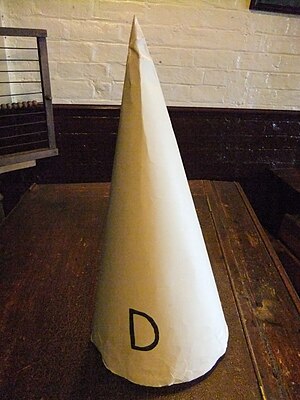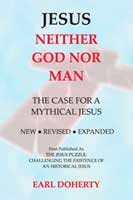The following time line of the evidence for Josephus’s mention of Jesus (The Testimonium Flavianum) was prompted as part of my preparation to address the discussion by Eddy and Boyd in The Jesus Legend. I will save my comments on how this timeline reflects on their evaluation of the evidence of Josephus till I next address their work.
Meanwhile, the following chronological overview of the extant references, variations and omissions may tell their own story for those interested in exploring this topic.
I have taken portions of the dateline from The Flavius Josephus Home Page. But since that only referred to a few of the relevant citations, most of the remainder is from my distillation of Earl Doherty’s comprehensive 2008 discussion of the manuscript and textual evidence, Josephus On the Rocks. (But since my revision on 7th March I have added quite a few more notes to highlight knowledge of Josephus among Church Fathers prior to Eusebius, but without any apparent knowledge of the Testimonium.)
For those new to this topic, the Testimonium Flavianum is the scholarly name given to the passage about Jesus in the writings of the first century Jewish historian, Josephus. Josephus was a famous for his recording of the history of the destruction of Jerusalem in 70 CE and the events leading to that event, as well as for writing a comprehensive history of the Jewish people with which to impress his Roman patron and audience.
Prior to the latter half of the twentieth century it was widely held by scholars (e.g. Charles Guignebert, Maurice Goguel) that this passage was a complete forgery (but see comment below by Ken Olson here), and that Josephus made no reference to Jesus in any of his works. Since then, there has been a near universal tendency to suggest that at least part of the current passage about Jesus was original to Josephus, and that it had been tampered with by later scribes. I am not convinced that these more recent arguments have overturned the substance of the earlier arguments, but details of the arguments will come in future posts. Those posts will refer back to the timeline below.
93 CE
Josephus: The book Jewish Antiquities by Josephus is published in Rome. . . Manuscripts surviving today also contain a description of Jesus. But was this description present in the year 93? Josephus, in deference to the sensibilities of his Roman protectors, is at pains to avoid any mention of Jewish Messianic hopes. The only reference to a Messiah is in the description of Jesus and Christians which first appear with Eusebius.
ca.140’s CE
Justin Martyr writes lengthy polemics against the unbelief of Jews and pagans and arguments for Christianity. No reference to Josephus. Had Josephus written about Jesus, positive or negative, could such works have remained unknown to Justin?
ca.170’s CE
Theophilus, Patriarch of Antioch writes lengthy polemics against pagan refusal to believe in Christianity. No reference to Jesus in Josephus, although he cites Josephus in his Apology to Autolycus, Bk 3, ch. 23.
ca.180’s CE
Irenaeus writes at length against unbelief without any reference to a work by Josephus. “[I]t is clear that Irenaeus was unfamiliar with Book 18 of ‘Antiquities’ since he wrongly claims that Jesus was executed by Pilate in the reign of Claudius (Dem. ev. ap. 74), while Antiquities 18.89 indicates that Pilate was deposed during the reign of Tiberius, before Claudius” (Wikipedia’s citation of Whealey’s ‘Josephus on Jesus’). Had Josephus discussed Jesus how could Irenaeus have been ignorant of the fact? Surely some knowledge of such a passage in the famous Jewish historian would have reached Irenaeus and others.
Fragment XXXII from the lost writings of Irenaeus, however, does know Josephus — see 32:53.
ca.190’s CE
Clement of Alexandria wrote extensively in defence of Christianity against pagan hostility. He knew Josephus’ works — see Stromata Book 1 Chater 21. No reference to any mention of Jesus by Josephus.
ca.200’s CE
Tertullian wrote lengthy apolegetics against unbelief and in justification of Christianity. No reference to a passage about Jesus by Josephus. But he elsewhere knows Josephus’ works — see Apologeticum ch.19.
ca.200’s CE
Minucius Felix, another apologist, no references to Jesus from Josephus, although he knows and cites Josephus — see chapter 33.
ca.210’s CE
Hippolytus wrote volumes of apologetics but appears to know nothing of a reference to Jesus by Josephus. Fragments of his works — see On Jeremiah and Ezekiel.145 — show he knows Josephus.
ca.220’s CE
Sextus Julius Africanus was a Christian historian who is not known to cite Josephus’s passage on Jesus although he did know of Josephus‘s works — see Chatper 17.38 of his Chronography.
ca.230’s CE
Origen knows Josephus: four citations of Josephus are found here, but none reference a Jesus passage in Josephus.
- cites a passage in Josephus on the death of James “the brother of Jesus” (Book 20 of the Antiquities);
- states Josephus did not believe in Jesus (Origen in fact notes that Josephus proclaimed the Roman emperor Vespasian as the long awaited world ruler of biblical prophecy).
- summarized what Josephus said about John the Baptist in Book 18.
- said Josephus attributed destruction of Jerusalem to murder of James the Just (something not found in our copies of the works of Josephus) — (Josephus actually implies the destruction of Jerusalem was punishment for the murder of Ananias).
- does not cite any reference to Jesus from Josephus.
ca.240’s CE
Cyprian (North Africa) prolific apologist with no reference to Jesus in Josephus.
ca.270’s CE
Anatolius, demonstrates his knowledge of Josephus in his Paschal Canon, chapter 3. No reference to Jesus in Josephus.
ca.290’s CE
Arnobius (North Africa) prolific apologist with no reference to Jesus in Josephus.
ca.300’s CE
Methodius, a Church Father who opposed Origen, and cites Josephus (see On the Resurrection — the citation is misplaced at the bottom of the page) but makes no reference to a Jesus passage in Josephus.
ca.300’s CE
Lactantius (North Africa) prolific apologist with no reference to Jesus in Josephus.
ca.324 CE
Eusebius quotes a reference in Josephus to Jesus that survives today in all manuscripts:
Now there was about this time Jesus, a wise man, if it be lawful to call him a man; for he was a doer of wonderful works, a teacher of such men as receive the truth with pleasure. He drew over to him both many of the Jews and many of the Gentiles. He was [the] Christ. And when Pilate, at the suggestion of the principal men amongst us, had condemned him to the cross, those that loved him at the first did not forsake him; for he appeared to them alive again the third day; as the divine prophets had foretold these and ten thousand other wonderful things concerning him. And the tribe of Christians, so named from him, are not extinct at this day.
Some expressions in the above are Josephan, but used in a way contrary to how Josephus uses them elsewhere. Some expressions are characteristic of those found in other writings of Eusebius. More on this in a future post.
Eusebius in fact cites this passage three times — in three of his works — to assert a reputable Jewish support for the good character of Jesus:
- Demonstratio Evangelica
- History of the Church
- Theophany
ca.370’s CE
Jerome cites Josephus 90 times but cites the Testimonium (the Josephan passage about Jesus) only the once, and that in his Illustrious Men, 13. “It is likely that Jerome knew of the Testimonium from the copy of Eusebius available to him.” (Eddy and Boyd). The silence on the Testimonium outside De Viris Illustribus 13 may well relate to the period prior to his attaining access to the Eusebian text of Josephus.
The one reference of Jerome’s is nearly identical to that of Eusebius except that where Eusebius had “He was the Christ”, Jerome cited Josephus as saying, “He was believed to be the Christ.” From CCEL:
In this same time was Jesus, a wise man, if indeed it be lawful to call him man. For he was a worker of wonderful miracles, and a teacher of those who freely receive the truth. He had very many adherents also, both of the Jews and of the Gentiles, and was believed to be Christ, and when through the envy of our chief men Pilate had crucified him, nevertheless those who had loved him at first continued to the end, for he appeared to them the third day alive. Many things, both these and other wonderful things are in the songs of the prophets who prophesied concerning him and the sect of Christians, so named from Him, exists to the present day.
Jerome, like Origen earlier, also wrote that Josephus interpreted the fall of Jerusalem as punishment for the stoning of James the Just, an interpretation not found in our copies of Josephus.
ca.380’s CE
St John Chrysostom
- In his Homily 76 he writes that Jerusalem was destroyed as a punishment for the crucifixion of Jesus.
- He discusses Josephus, but makes no reference to any passage about Jesus in Josephus.
- In his Homily 13 he writes that Josephus attributed the destruction of Jerusalem to death of John the Baptist.
ca.370’s CE
Latin Pseudo-Hegesippus and the Hebrew Josippon dependent on Ps-Hegesippus, cite free paraphrases of the Josephan reference to Jesus first cited in Eusebius. From Stephen Carlson’s Hypotyposeis:
About which the Jews themselves bear witness, Josephus a writer of histories saying, that there was in that time a wise man, if it is proper however, he said, to call a man the creator of marvelous works, who appeared living to his disciples after three days of his death in accordance with the writings of the prophets, who prophesied both this and innumerable other things full of miracles about him. from which began the community of Christians and penetrated into every tribe of men nor has any nation of the Roman world remained, which was left without worship of him. If the Jews don’t believe us, they should believe their own people. Josephus said this, whom they themselves think very great, but it is so that he was in his own self who spoke the truth otherwise in mind, so that he did not believe his own words. But he spoke because of loyalty to history, because he thought it a sin to deceive, he did not believe because of stubbornness of heart and the intention of treachery. He does not however prejudge the truth because he did not believe but he added more to his testimony, because although disbelieving and unwilling he did not refuse.
ca.400’s CE
Augustine (North Africa), another prolific apologist, apparently knew nothing of any reference to Jesus by Josephus.
fifth century CE
Tables of Contents of the works of Josephus were attached to Greek manuscripts, “and there is evidence that such tables were already attached to Latin manuscripts of the work as early as the 5th century.” H. Thackeray as cited, in part, by Doherty:
. . . the chapter headings “are ostensibly written by a Jew,” and “though it is improbable that these more elaborate chapter headings are the production of his [Josephus’] pen, they may well be not far removed from him in date.” The Table of Contents for Book 18 lists 20 topics dealt with in the book, but there is no mention of the Testimonium among them. . . .
ca.870’s CE
Photios, Patriarch of Constantinople, citing Earl Doherty’s Josephus On the Rocks:
[Photius] in compiling his Library (a review of several hundred ancient books, including treatises on the works of Josephus) apparently possessed a copy of Josephus which contained no Testimonium, nor even those interpolations we conclude were introduced to make Josephus say that the destruction of Jerusalem was due to the death of James the Just, or of John the Baptist. As Zindler says,
“Since Photius was highly motivated to report ancient attestations to the beginnings of Christianity, his silence here argues strongly that neither the Testimonium nor any variant thereof was present in the manuscript he read. This also argues against the notion that the Testimonium was created to supplant an originally hostile comment in the authentic text of Josephus. Had a negative notice of a false messiah been present in the text read by Photius, it is inconceivable he could have restrained himself from comment thereon.”
Photius does discuss the Antiquities 18 passage on John the Baptist. To think that he would do so yet pass up one about Christ himself—no matter what its nature—is, as Zindler says, quite inconceivable. Photius at a number of points also seems to quote marginal notes from his copy of Josephus, giving evidence of the ease with which such things could have found their way into the original text and given rise to debates about what was authentic to Josephus’ own writings.
10th Century
The Arab Christian historian Agapius quotes a version of the Testimonium that differs from that of Eusebius.
At this time there was a wise man who was called Jesus. And his conduct was good and his learning outstanding. And many people from among the Jews and the other nations became his disciples. Pilate condemned him to be crucified and to die. And those who had become his disciples did not abandon their discipleship. They reported that he had appeared to them three days after the crucifixion and that he was alive; accordingly, he was perhaps the Messiah, concerning whom the prophets have recounted wonders. (translation of Shlomo Pines)
11th-12th centuries
Slavonic Josephus cites another free paraphrase of the Josephan reference to Jesus first cited in Eusebius. This contains the same variant (He was believed to be the Christ) found in Jerome. The passage below is from Solomon Zeitlin:
At that time also a man came forward—if even it is fitting to call him man (simply). His nature as well as his form were a man’s; but his showing forth was more than (that) of a man. His works, that is to say, were godly and he wrought wonder deeds amazing and full of power. Therefore it is not possible for me to call him a man (simply). But again looking at the existence he shared with all, I would also not call him an angel. And all that he wrought through some kind of invisible power, he wrought by word and command. Some said of him that ‘our first Law-giver has risen from the dead and shows forth many cures and arts’. But others supposed (less definitely) that he is sent by God. Now he opposed himself in much to the Law, and did not observe the Sabbath according to ancestral custom. Yet, on the other hand, he did nothing reprehensible nor any crime, but by word solely he effected everything. And many from the folk followed him and received his teachings. And many souls became wavering, supposing that thereby the Jewish tribes would free themselves from the Romans’ hands. Now it was his custom often to stop on the Mount of Olives, facing the city. And there also be avouched his curse to the people.
And he gathered themselves to him of servants a hundred and fifty, but of the folk a multitude. But when they saw his power, that he accomplished everything that he would by word, they urged him that he should enter the city and cut down the Roman soldiers and Pilate, and rule over us. But that one scorned it. And thereafter when knowledge of it came to the Jewish leaders, they gathered together with the high priest and spoke: ‘We are powerless and weak to withstand the Romans. But as withal the bow is bent, we will go and tell Pilate what we have heard, and we will be without distress, lest if he hear it from others, we be robbed of our substance and ourselves be put to the sword and our children ruined.’ And they went and told it to Pilate.
And he sent and had many of the people cut down. And he had that wonder-doer brought up. And when he had instituted a trial concerning him he perceived that he is a doer of good, but not an evil-doer, nor a revolutionary, nor one who aimed at power, and let him free. He had, you should know, healed his dying wife. And he went to his accustomed place and wrought his accustomed works. And as again more folk gathered themselves together round him, then did he win glory through his works more than all.
The teachers of the law were (therefore) envenomed with envy and gave thirty talents to Pilate, in order that he should put him to death. And he, after he had taken the money, gave consent that they should themselves carry out their purpose, and they took and crucified him according to the ancestral law.
For more extracts from the Slavonic Josephus see Mead’s citations on the Sacred Texts website.
Like this:
Like Loading...
 Niels Peter Lemche has a chapter in Lester Grabbe’s Did Moses Speak Attic titled, “The Old Testament – A Hellenistic Book?” Here are a few highlights from it. The first point here should stand out as equally relevant for New Testament studies.
Niels Peter Lemche has a chapter in Lester Grabbe’s Did Moses Speak Attic titled, “The Old Testament – A Hellenistic Book?” Here are a few highlights from it. The first point here should stand out as equally relevant for New Testament studies.



